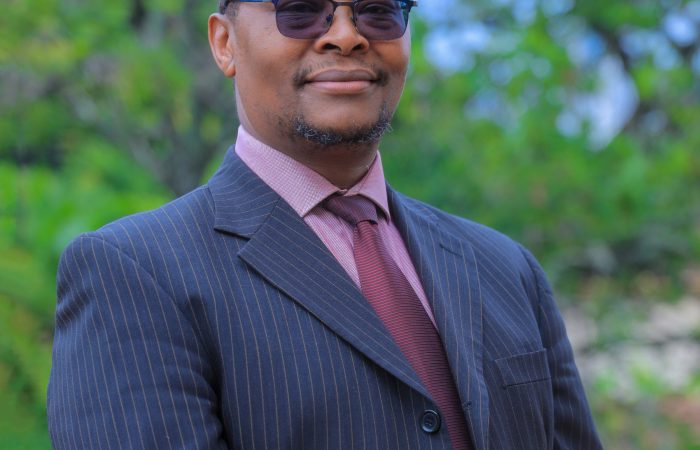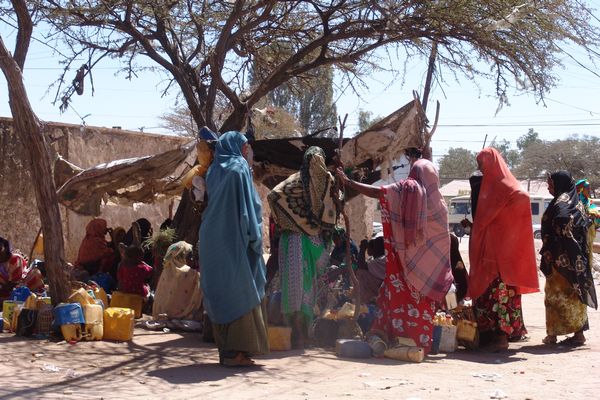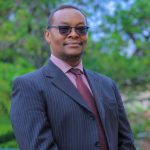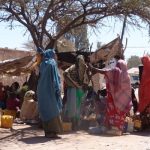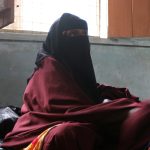This is a guest post by Isatou Batanon, Social Policy Specialist, UNICEF Somalia. It first appeared on UNDG Silo Fighters.
Somalia is slowly emerging from decades of conflict, recurrent drought and mass population movements, and is currently on a trajectory towards greater peace and stability. A federal structure has been in place since 2012, with the emergence of new Federal Member States (FMS) and most recently of elected district councils. The establishment of these local governance structures, which are closest to the population and best placed to respond to local needs, offers promising opportunities for stability and security in the country. Key to realising this potential is the establishment of strong relationships between local government and citizens that are based on trust, cooperation and legitimacy.
Seizing opportunities and addressing gaps
It is in this context that the United Nations (UN) Resident Coordinator’s Office/Peace-Building Fund Secretariat and UNICEF Somalia developed a joint initiative to support the local community to express its priorities and concerns, and to stimulate discussions between local government officials and their constituents in two districts: Baidoa and Kismayo.[1] The Daldhis (nation-building) scorecard project was funded in 2017, under the Voice pillar of the UN Development Operations Coordination Office (DOCO) Delivering Together for Sustainable Development Facility. It was implemented through the Joint Programme on Local Governance and Decentralized Service Delivery, a programme led by UNDP, UN Habitat, UNCDF, UNICEF and ILO, which supports the establishment of legitimate and functional local government across Somalia. The Daldhis project fills an important gap in the programme with regards to citizen feedback and dialogue with local authorities, and will be used to tailor other components of the joint programme.
Building strong relationships between citizens and government can be challenging in the Somali context. District and state officials in the emerging FMS have generally been confined to major cities and towns and been unable to travel to other areas due to security and infrastructure-related constraints. The Somalia UN Country Team and other implementing partners are also unable to conduct real time community level surveys to inform their work. There is consequently demand for cost-effective, accessible and open spaces for public engagement and dialogue around emerging government institutions and governance issues that can also generate insights and recommendations for policy and governance programmes.
Establishing the interactive forum and building engagement
UNICEF, in partnership with Africa Voices Foundation,[2] designed a research and citizen engagement initiative based on the Community Scorecard methodology.[3] While this approach has been tried before in more stable parts of the country, the challenge in southern Somalia was to establish large-scale and inclusive forums for citizen-government dialogue. Given the extent of mobile phone penetration and reach of radio in Somalia,[4] it was decided to build engagement through interactive radio discussions driven by audience input sent in by Short Message Service (SMS).
Based on consultations with government and UN stakeholders, the following areas were highlighted as priorities for civic engagement and generating evidence on citizen perspectives: 1) the role of local government and perceptions around service delivery; 2) security; 3) political efficacy and participation, especially around minority clans; 4) women’s participation in decision-making in Baidoa; and 5) returnee reintegration in Kismayo.
Radio discussions were implemented across two month-long cycles. For the first three weeks of each month, audiences respond to questions broadcast on the radio, a different one each week. In the fourth week of each cycle a script is produced based on AVF’s analysis of citizen perspectives, and including quotes from citizen voices. This script guides interviews and discussions with government officials to form the core content of this digital public dialogue. The show is broadcast through a mixture of independent and government-owned radio stations to ensure greater public engagement, featuring a more diverse range of opinions.

Across a period of two months, 1,521 people shared their opinions with the radio programme, via SMS. The channel reached women (36.8 per cent of participants), IDPs (32.3 per cent of participants) and youth (65 per cent of participants were under the age of 25). Radio discussions were considered to be ‘plural’ in that different perspectives were heard and recognised, which allowed for the identification of new solutions to shared problems. The programme was clearly valued by many participants, both citizens and authorities. Of the citizen participants, 73.2 per cent were pleased with how officials responded to their concerns, whilst the majority (56.9 per cent) participated more than once.
Key findings
AVF analysed citizen perspectives to generate evidence on their opinions on priority issues, and how these varied by different demographic groups. These findings were verified and discussed with government representatives and UN stakeholders.
- Radio participants were generally optimistic about local government performance and this was based on their perceptions of overall positive change in their environment. However, satisfaction with service delivery was lower amongst the more educated, older people and men. This suggests that managing expectations amongst these groups will be important to broader social cohesion and stability and that, in the short term, greater civic empowerment and participation in governance may lead to a reduction in satisfaction even as services improve.
- Those dissatisfied with local government performance often discussed this in terms of government failing to live up to certain political values, such as transparency, fairness or abiding by Somali cultural and religious norms. This suggests that Government should respond to the values put forward by citizens and ensure their actions and communications reflect and reinforce these values.
- There was a clear lack of consensus amongst radio audiences on which institution(s) should be responsible for security. There was strong support for communal approaches to security, with a particular focus on youth. This needs to be considered, potentially through reinforcing approaches to community policing that involve youth.
- Many citizen voices put forward a shared sense of identity and a language of common citizenship and rights as justification for the inclusion of marginalized groups such as women, minority clans and returnees. Interventions that promote collective reflection on shared history and culture can encourage greater social inclusion.
- Women’s position as the ‘backbone of the community’ was seen as defining their role in decision-making in Baidoa. For some, this was seen as justifying their broader inclusion in society, but for others it separated them from government and formal institutions for decision-making. Amplifying the positive angle of this narrative, that women as the community’s backbone can and should be part of all decision-making, will be important to ensure their voice is heard at all levels.
Lessons learned
- While participation in the project was promisingly inclusive in terms of representation from women and youth, future iterations will need to be creative in terms of both content and infrastructure to reach those in rural areas, those who are older and those with less education. This might include deploying interactive voice response technology[5] so people can participate without having to read and write, and linking up with radio infrastructure emerging in hard-to-reach areas.
- District council formation is intensifying across Somalia. This tool can be used to support this broader initiative, by ensuring that topics and questions are well sequenced with the district council formation process and can inform the process, both pre-formation and once districts are established.
- There are clear linkages between civic education and civic engagement projects, such as Daldhis. Evidence from citizen voices can inform civic education materials and strategy, whilst civic education can support subsequent rounds of engagement.
- Sustained engagement could be improved by reducing the time between hearing from citizens and the airing of radio shows, increasing citizens’ sense of being recognised and responded to by the project.
- The involvement of civil society, traditional leaders and other key stakeholders across the project cycle could increase the visibility, quality and impact of the work. This could make for more engaging and plural discussions in the first instance, but also bring more perspectives into refining insights and recommendations.
- Questions and topics to guide radio discussion should speak to the priorities of both government and citizens. This can be achieved through sustained partnership with government and involving citizen voices in the initial design phases of the project. Tapping into initiatives like the Somalia Big Data project implemented by the UN Global Pulse should also allow the project to identify and leverage trending topics.[6]
- Continued support to media partners in localities can support their technical production and broadcasting capacity, as well as their skills in convening inclusive, civil and engaging shows, such as panel discussions or live broadcasts. More media support should also be made available to government officials so that they are comfortable and capable of dealing with audience feedback – hearing their concerns and proposing new and realistic solutions, whilst managing expectations of what is possible.
- The value of the evidence presented here, should be maximised by systematically linking up such an initiative with government decision-making processes, ensuring that evidence is presented through the right entry points and in appropriate formats and timeframe. This is best achieved as part of a long-term partnership with government.
The Daldhis project has successfully demonstrated to the Somali government and its development partners how constructive relationships might be fostered between citizens and local governments, as they seek to build the foundations for inclusive, effective and accountable local governance in Somalia. Lessons learned also point to how such an initiative might be strengthened and scaled up in support of the government’s peace and stability agenda.
Blog written by:
Isatou Batonon, Social Policy Specialist, UNICEF Somalia
Twitter: @UNICEFSomalia
[1] Baidoa and Kismayo districts represent interim local government administrations, with district council elections scheduled to take place in the coming months. They are among the more established local administrations in the new FMS as they regularly collect revenues and deliver basic services.
[2] Africa Voices Foundation (AVF) is a research and citizen engagement organization spun out of the University of Cambridge, focused on gathering and analysing the views of ordinary citizens through new technologies in order to inform development and governance programmes.
[3] The Community Scorecard is a social accountability tool that empowers citizens to provide feedback on the performance of duty bearers, engage in dialogue and hold them accountable for addressing their concerns.
[4] More than 7 in 10 Somalis (72.4 per cent) say they personally own a mobile phone; almost 84 per cent use radio to get their news at least once a week (Gallup, 2013)
[5] Interactive voice technology allows users to ring a toll-free short code and leave their opinion as a recorded voice message, rather than an SMS. AVF is developing workflows and systems to be able to analyse this data.
[6] The Somalia Big Data initiative monitors radio and social media to identify peace-building and governance topics being discussed by Somalis.
